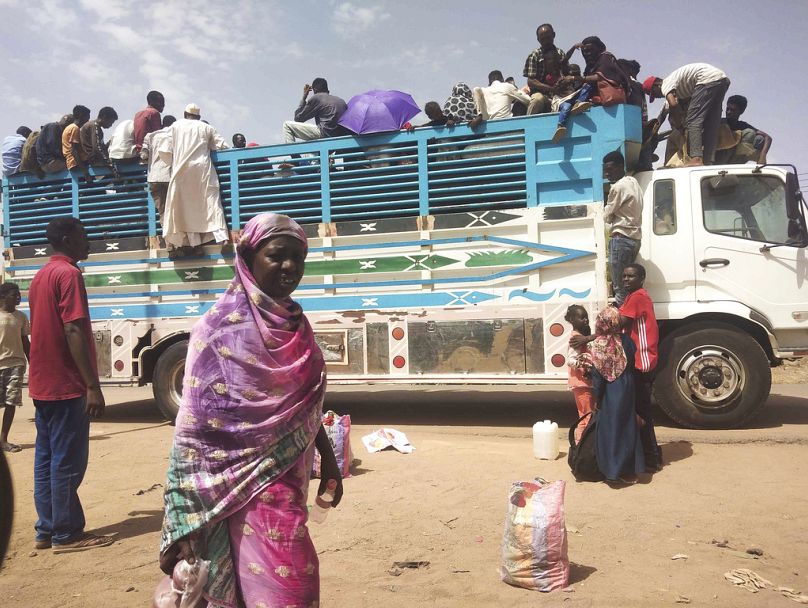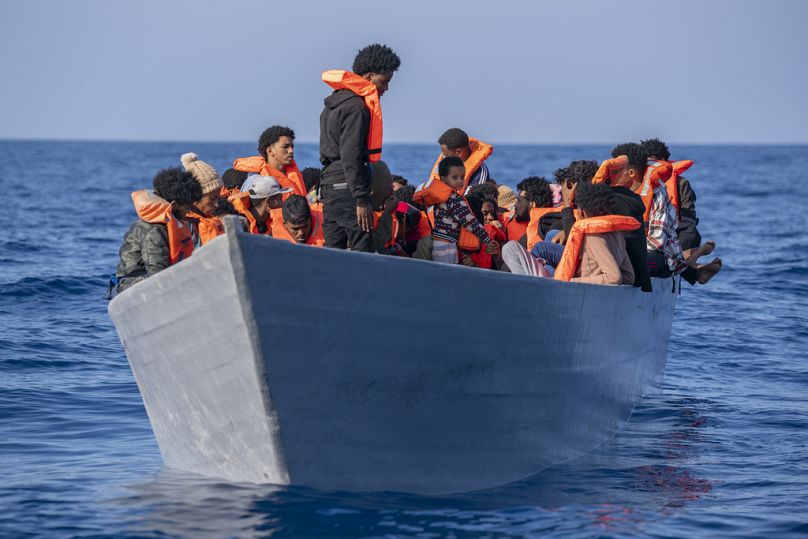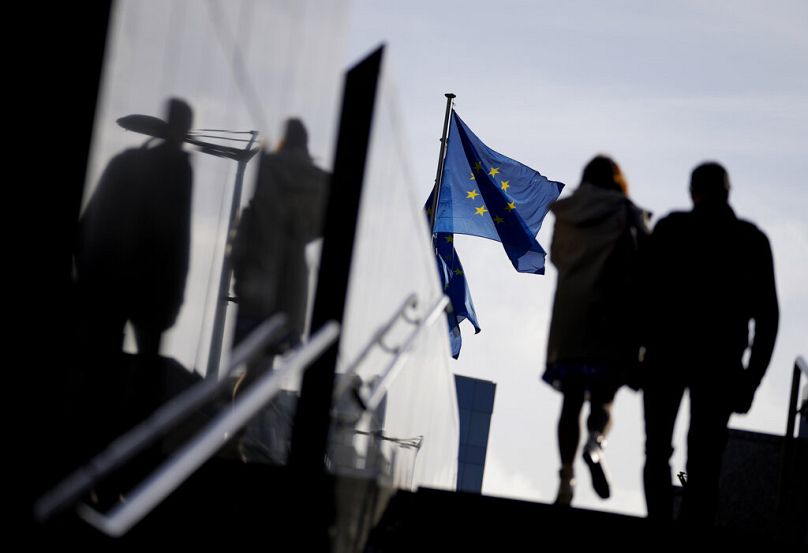A comparison of our responses to recent conflicts should not suggest that there is a hierarchy of victims. Quite the contrary, the history of the EU has shown repeatedly that human rights protections benefit us all — they are not a zero-sum game, Holger Loewendorf writes.
The people of Sudan must be wondering what else needs to happen before Europe pays attention to their plight once more.
Earlier this month, paramilitary Rapid Support Forces (RSF) and affiliated Arab militias attacked the town of Ardamata in West Darfur.
The UN Refugee Agency reported that more than 800 people were killed, while 8,000 others — likely an undercount — fled to neighbouring Chad over the course of three days.
After seizing the local military base, the RSF and their allies targeted members of the non-Arab Masalit community inside their homes — shooting men and boys, sexually assaulting women and girls, and setting fires to shelters housing displaced people.
These atrocities may amount to the single largest mass killing since civil war erupted in April and raise the spectre of yet another genocide, following a wave of large-scale violence in June.
Are we leaving Sudan by the wayside?
The United Nations, the European Union, and other Western governments have condemned the systematic killing and displacement of the Masalit from their land since the start of Sudan’s civil war, but their criticism has not deterred the RSF from committing more atrocities.
Just as striking is the absence of public and media engagement on this issue, especially when compared to the intense news coverage and mass rallies (with increasingly disturbing antisemitic messages) after Hamas' militant wing launched a terror attack on Israel on 7 October of this year, killing more than 1,200 people.
We saw a similarly passionate response across civil society when Russia invaded Ukraine in 2022, so what explains the apparent indifference towards the victims in West Darfur?
Do we care less because this is happening in Africa, where news of conflict, famine, and poverty confirm our preconceived notions of what this continent looks like? But we should recall that our biases and feelings are not facts.
If there was nothing but a vicious cycle of despair, why are we participating in a process that some observers have paternalistically called a “new scramble for Africa”?
European delegations are touring the continent in search of allies, influence, and economic opportunities, in large part because our electronic devices rely on raw materials that cannot be sourced domestically.
Our competitors in this race are the United States, China, Russia and others. Our motives — and theirs — are seldom pure, but if Europe wants to stand out as a reliable and trustworthy partner to African nations, it cannot engage selectively and leave Sudan by the wayside.
Our inaction makes others risk their lives several times over
Alternatively, are we paying less attention because rocket attacks in the Middle East and Ukraine are physically closer to us than the bullets being fired in Darfur?
Do we believe that war crimes happening 4,500 km southeast of Brussels will not affect our lives?
If so, consider that according to the International Organization for Migration, the Sudanese civil war displaced more than 4,8 million individuals since mid-April.
An additional 1,3 million people fled into neighbouring countries, more than half a million of them to Chad alone. At least 31% of the displaced population is younger than 18 years, and close to 90% of them do not have access to education.
An entire generation cannot take advantage of the same opportunities that most Europeans can take for granted. These young people have the potential to rebuild Sudan, but they require peace and stability to do so.
Instead, our inaction will drive many of them to risk their lives several times over in search of a better future, which may await across the Mediterranean Sea.
If EU member states prefer that they stay in Africa, perhaps a more active role in the prevention of these massacres, to say nothing of genocide, is required.
Otherwise, we have already seen that politicians throughout Europe will cynically exploit their arrival and our failure to accommodate them. They are increasingly winning elections by demonising refugees and migrants wholesale.
Meanwhile, we have the means along with historical, moral, and legal obligations – to say nothing of the demographic need – to provide safety and a sense of hope for them.
If everything is a crisis, nothing is a crisis
Lastly, is our attention span overtaxed by the conflagration of events that is frequently summarized as “polycrisis”?
In the last three years, we have had to cope with a global pandemic, accelerating climate change as well as an energy and cost-of-living crisis — the latter two caused by the aforementioned war in Ukraine.
Narrowing the scope to the last month, one can add military conflicts in Israel and Gaza, Nagorno-Karabakh, and the Sahel zone (including Sudan) to the list.
So yes, it is difficult to keep track of every single calamity, and our selective perception of bad news may even help us remain sane.
But it is also worth noting that the term “polycrisis”, while appealing in its descriptive function, is analytically quite limiting. It flattens discrete, though frequently connected moments into an amorphous whole that can create the impression of a self-fulfilling prophecy.
If everything is a crisis, nothing is, so there is nothing I can or need to do about it.
The consequence of this doom spiral is a retreat from public affairs and ultimately the surrender of universal values.
The European Union and most of its member states have so far resisted this temptation. Instead, the response to current geopolitical challenges has been a desire to “be among the keepers of international and humanitarian law,” as Josep Borrell, EU High Representative for Foreign Affairs and Security Policy, recently put it.
'We see you, we can help, and we will'
Sudan is a test of the European commitment to human rights. We have failed the country before and revealed that our high-minded principles are worthless unless accompanied by actions.
The gap between rhetoric and reality is widening as long as EU leaders are not taking meaningful action in good faith to address this crisis as well.
A comparison between our responses to the invasion of Ukraine and the war between Israel and Hamas on the one hand, and the terror in Darfur on the other, should not suggest that there is a hierarchy of victims.
Quite the contrary, the history of the European Union has shown repeatedly that human rights protections benefit us all — they are not a zero-sum game.
Now it is high time to issue a credible promise to the Sudanese people: we see you, we can help, and we will.
_Holger Loewendorf serves as Senior Advisor at the European Foundation for Democracy (EFD), a Brussels-based policy centre.
_
At Euronews, we believe all views matter. Contact us at view@euronews.com to send pitches or submissions and be part of the conversation.














